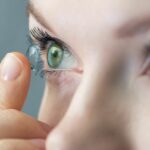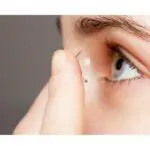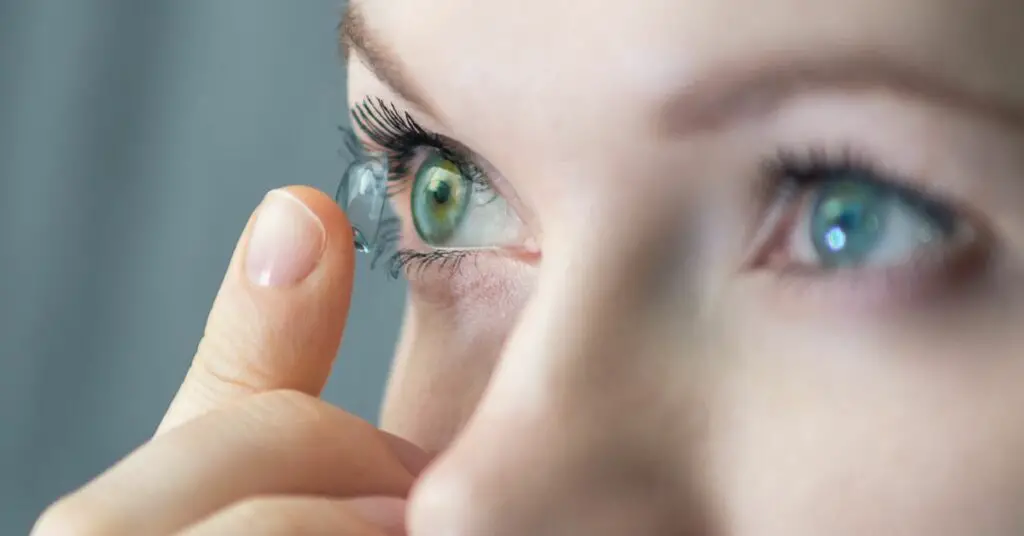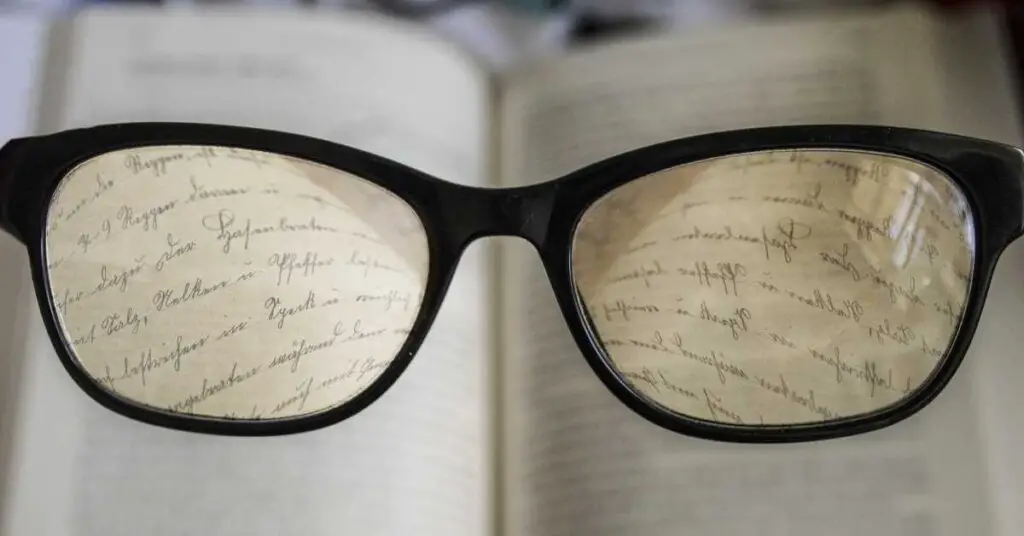Do you find yourself squinting and straining your eyes when trying to read a book or newspaper? Do you experience headaches after doing close-up work like reading, writing, or using the computer? If so, then it might be time for you to consider getting a pair of reading glasses. Reading glasses are specially designed lenses that help people with presbyopia—the age-related loss of near vision—see up close more clearly. But can anyone wear reading glasses? Read on to find out!
Yes, anyone can wear reading glasses, even though they’re designed primarily for those with presbyopia. People without this condition may find that wearing reading glasses helps them see close up objects more clearly.
It’s reduces eyestrain when looking at small print or doing detailed work.

What are reading glasses and who should wear them
Reading glasses are special glasses designed to help people with near vision problems. They magnify the words on a page, alleviating eyestrain and making it easier to read.
Although they are often seen as a tool for those in their senior years, anyone who has trouble reading small print can benefit from them. Whether due to age-related presbyopia or other weakened eyesight conditions, reading glasses can come in handy in helping those of all ages see more clearly.
Most optometrists recommend purchasing multiple pairs so you always have them nearby no matter where you are.
What warning signals should you look out for to wear reading glasses?
1. Blurring Vision: One of the key warning signs that you need reading glasses is if your near vision starts to blur or become increasingly fuzzy when looking at objects up close.
2. Headaches: If you’re having regular headaches after doing close-up work like reading, writing, or computer use, then this could be a sign that you need reading glasses.
3. Squinting: When trying to read text or focus on an object up close, do you find yourself squinting and straining your eyes? If so, then wearing reading glasses may help improve your vision and alleviate eyestrain.
4. Difficulty Transitioning Focus: Do you often have trouble shifting focus from distant objects to near ones, or vice versa? This could indicate that you need to wear reading glasses.
5. Eye Fatigue: If your eyes feel tired and strained after doing close-up work, then wearing reading glasses can help reduce this fatigue and make it easier for you to focus.
So if you’re experiencing any of these warning signs, be sure to talk to an optometrist or eye care specialist about getting the right prescription for a pair of reading glasses. Not only will they help improve your vision, but they may also prevent headaches and eyestrain in the future!
Is it harmful to wear reading glasses if you have perfect vision?
No, it is not harmful to wear reading glasses if you have perfect vision. However, if your vision is still good, then you should opt for a very low-power lens – usually 1 diopter (D) or less. This will provide a minimal magnification and won’t cause any harm to your eyesight. If you’re unsure about which power would be best for you, talk to an eye care professional who can advise the correct prescription for your needs.
Why do people wear reading glasses even though they got perfect vision?
1. Work or hobbies that require intense focus:
People may wear reading glasses even if they have perfect vision to make it easier to do detailed work, such as crafts and needlework, computer programming, or engineering.
2. Reducing eyestrain:
Reading glasses can also help reduce strain on the eyes when looking at small print for extended periods of time.
3. Aesthetic appeal:
Some people may find that wearing reading glasses enhances their look by making them appear more intellectual and mature.
4. Convenience:
If you have multiple pairs of prescription glasses, but don’t want to constantly switch between them, then wearing a pair of low-power reading glasses could be a convenient solution that provides a constant magnification.
5. Protection:
People with perfect vision may also wear reading glasses to protect their eyes from excessive exposure to bright sunlight or glare when looking at screens for extended periods of time.
6. Magnifying everyday items:
Reading glasses can be useful for magnifying small objects such as coins, screws, and fine details on machinery that require additional focus.
Is it wise to wear reading glasses to prevent future eye problems?
Yes, it is wise to wear reading glasses if you are experiencing any of the warning signs mentioned above, or if your vision has started to decline. Wearing reading glasses can help improve vision and prevent eyestrain and headaches associated with close-up work.
Additionally, wearing reading glasses may also reduce your risk of developing long-term eye problems such as nearsightedness, astigmatism, and cataracts by keeping your eyes from having to strain too much in order to focus on close objects. To ensure that you get the highest quality lenses for your needs, make sure to consult a qualified optometrist before purchasing reading glasses.
Are there any risks associated with wearing reading glasses when you have perfect vision?
Yes, there are some risks associated with wearing reading glasses when you have perfect vision.
The most common risk is that the eyes can become dependent on the magnification provided by the lenses and may stop working as hard to focus. This can lead to a decrease in the overall clarity of your vision over time.
Additionally, if you wear reading glasses for extended periods of time, it can increase eye fatigue and strain which could further contribute to vision loss or other issues. Therefore, if you choose to wear reading glasses even though you have good vision, be sure to take breaks from them regularly and give your eyes a chance to rest.
It is also important to remember that any type of prescription lens should only be obtained after consulting an optometrist or eye doctor. They can advise the best prescription for your needs and ensure that you get the highest quality lenses available.
It is recommended that all people, regardless of their vision, should have regular eye exams to ensure good eye health and detect any potential problems early on. An optometrist or ophthalmologist can determine the best type of reading glasses for your needs and provide advice on how often they should be worn in order to prevent long-term damage to your eyes.
In summary, although anyone can wear reading glasses if they need them, it is important to consult an eye care professional before purchasing any type of prescription lens. This will help ensure that you get the right lenses for your needs and reduce the risk of developing further eye problems.
What are things to consider with wearing reading glasses if you don’t have any vision issues?
When wearing reading glasses if you don’t have any vision issues, it is important to consider a few things.
Firstly, make sure that the lenses are of suitable strength and prescribed by an optometrist or eye doctor.
Secondly, only wear your reading glasses when necessary and take regular breaks from them in order to maintain good eye health.
Lastly, look out for signs such as headaches and eyestrain which may indicate that you are wearing the wrong prescription or need stronger lenses.
In summary, anyone can wear reading glasses but it is important to always consult a qualified professional first in order to get the right lenses for your needs and reduce the risk of developing further long-term problems.
are there any alternatives to reading glasses that can be used by anyone?
Yes, there are some alternatives to reading glasses that can be used by anyone.
One option is magnifying lenses. These come in a range of strengths and can be worn like regular glasses or attached to other items such as phones and tablets in order to magnify words and images.
Another option is an electronic reader, which uses a backlit LCD display to enlarge text on the page. This type of device has the added benefit of being able to adjust the font size with the touch of a button, making it ideal for people who need different levels of magnification for different tasks.
Finally, there are also non-prescription reading glasses available that can help improve vision when doing close-up work without needing an optometrist’s prescription. However, it is important to remember that these types of glasses may not be suitable for everyone and should only be used with the advice of a qualified professional.
Conclusion.
In conclusion, anyone can wear reading glasses if they need them. However, it is important to consult a qualified optometrist or eye doctor in order to get the right lenses for your needs and reduce the risk of long-term vision problems. Additionally, there are also some alternatives to reading glasses such as magnifying lenses and electronic readers which can be used by people without any vision issues. Finally, it is important to take regular breaks from wearing reading glasses in order to give your eyes a chance to rest and maintain good eye health.











